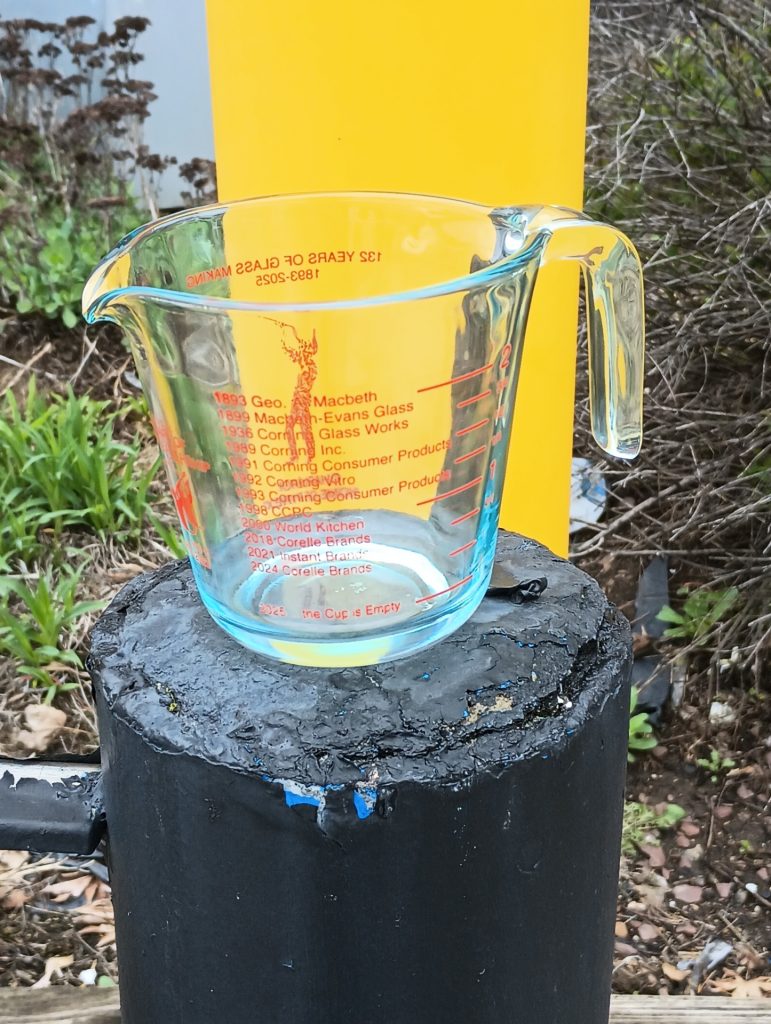The last lunch whistle blew at noon Friday at World Kitchen Plant in Charleroi as the plant produced its last products. The sound permeated the air for 132 seconds to mark the 132 years of the plant’s existence in the Mon Valley. A number of current and former employees were present as the American flag flown on the pole at the Eighth Street entrance was taken down and replaced with a flag commemorating those 132 years.
Although the last piece of glass was produced there Friday, some employees will remain on the job until June. Hugs were exchanged and tears flowed as an era came to a close. “(I’m) very depressed; very, very emotional,” said a tearful Daniele Byrne, who has worked at the plant for 35 years.

“Now, we’re losing a family here.” About 100 employees saw their tenures end at the plant Friday, with the last shift signing off at 6 a.m.
Many more had already departed since being informed in September that operations would be moving to an Anchor Hocking plant in Lancaster, Ohio. Total of 270 employees are impacted by the closure. Tony Pane, a plant engineer who’s worked there for 36 years, addressed the group.
“We lowered our flags here at half mast with heavy hearts when we received the news that the home of Pyrex was going to be shut down,” he said. “I stand here and shed a tear over the loss of our factory that’s been under my watch. But with this sadness we must stand together and celebrate 132 years of glassmaking at this site.
One hundred thirty-two years ago, Charleroi’s dreams were vibrant, bringing hope and promise of a bright future. Over the years, countless individuals have found ways to support their families and contribute toward building America. For that, we are extremely, deeply grateful.
” Charleroi Councilman Larry Celaschi was emotional as he talked about a place that once employed his grandfather. “The only thing I have going through my head is that it’s hard to negotiate with a cold-hearted (person) and that’s what (Anchor Hocking CEO) Mark Eichhorn is,” he said, his eyes filled with tears. “When you have no communications, then you’re going to end up seeing a lot of tears in the eyes of the people that we just saw here, and a lot of heartache.
” Mayor Gregg Doerfler offered a similar sentiment. “It’s a sad day,” he said. “To me (Eichhorn) is greedy.
He screwed up a town and a whole bunch of people.” Vincenne Cheatham worked at the plant for 35 years and planned to retire in a year. “My heart has sunk,” she said.
“This was the way I made my living. It’s a close-knit family. We all worked together well.
” Joe Dzurko’s tenure at the plant ended in February after 15 years. He has secured employment as a member of the borough’s street department. Friday was an emotional day for him as well.
“It’s a very sad day for the borough of Charleroi,” he said. “It was a great place to work for 15 years. I made a lot of nice friends.
It’s just very sad.” Glass measuring cups displaying a history of the plant were handed out to those in attendance. Ruth Belsick, who retired 11 years ago after 25 years proudly displayed hers, which reads on the final line, “2025 .
.. The cup is empty.
” “When I worked here, I decorated these measuring cups,” said the Belle Vernon resident. “I trained a lot of people that made the last measuring cups.” The plant opened in 1893 as MacBeth-Evans Co.
Ownership has changed hands numerous times in its long history. The most recent owners are New York-based Centre Lane Partners, following its acquisition of the appliances division of Instant Brands. Anchor Hocking is another company under the Centre Lane umbrella.
“It’s sad,” Belsick said. “It’s going to affect everybody around here in the Valley. Everybody had somebody who worked here at one time or another.
My grandmother worked here when the men went off to war and a lot of women worked here. I still have a lot of friends here. We spent many days together, more here than with our family.
”.
Top

Last call

The last lunch whistle blew at noon Friday at World Kitchen Plant in Charleroi as the plant produced its last products. The sound permeated the air for 132 seconds to mark the 132 years of the plant’s existence in the Mon Valley. A number of current and former employees were present as the American flag [...]











